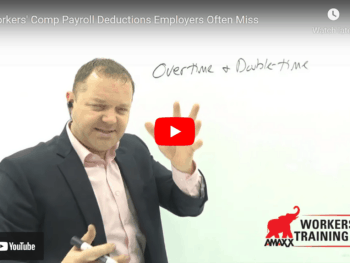How Would You Decide: Kentucky Court Finds Lump Sum Workers’ Comp Settlement is Marital Property—Divides Equally Between Injured Worker and Spouse?
Here’s What Happened
Husband and wife, Kentucky residents, were married in 2000 and had two children born of the marriage. Husband suffered a work-related injury in January 2006. Husband and wife separated in mid-April 2006. Husband filed an application for workers’ compensation benefits after the separation. A settlement agreement providing for $30,000 was approved after wife petitioned for dissolution of the marriage. The breakdown of the settlement included $15,000.00 for future and past income benefits; $10,000.00 for waiver of future medical benefits; $2,500.00 for waiver of his right to reopen; and $2,500.00 for a waiver of his right to vocational rehabilitation. The trial court concluded that the husband’s entire workers’ compensation settlement was a marital asset and awarded the wife one-half of the settlement. The husband contended the trial court erred by determining that his entire workers’ compensation settlement was a marital asset and that the trial court failed to divide the settlement in just proportions.
Click Link to Access Free PDF Download
“Workers’ Comp Claims Review Checklist: 9 Must-Have, Serious-Impact Elements”
Here’s What The Court Decided
In Day v. Day, 2009 Ky. App. LEXIS 248 (Dec. 11, 2009), the Court of Appeals of Kentucky held there had been no error. Citing Quiggins v. Quiggins, 637 S.W.2d 666 (Ky. Ct. App. 1982), the court noted that workers’ compensation benefits in either the form of a lump sum settlement or ongoing benefits are marital property. The court also observed that the marriage had not been of short duration, that the husband was not totally disabled, and that the husband had the ability to obtain appropriate job skills but had chosen not to do so, the appellate court found that the trial court had appropriately found that the parties equally contributed to the marriage. The trial court found that the parties contributed equally to the marriage. The trial court had broad discretion in dividing marital property. While the court was mindful that the husband was injured just three months prior to the separation, the appellate court could not conclude that the trial court had abused its discretion.
See generally Larson’s Workers’ Compensation Law, § 89.08.
Tom Robinson, J.D. is the primary upkeep writer for Larson’s Workers’ Compensation Law (LexisNexis) and Larson’s Workers’ Compensation, Desk Edition (LexisNexis). He is a contributing writer for California Compensation Cases (LexisNexis) and Benefits Review Board – Longshore Reporter(LexisNexis), and is a contributing author to New York Workers’ Compensation Handbook(LexisNexis). Robinson is an authority in the area of workers’ compensation and we are happy to have him as a Guest Contributor to Workers’ Comp Kit Blog. Tom can be reached at: compwriter@gmail.com. http://law.lexisnexis.com/practiceareas/Workers-Compensation
©2010 Amaxx Risk Solutions, Inc. All rights reserved under International Copyright Law. If you would like permission to reprint this material, contact Info@ ReduceYourWorkersComp.com

























